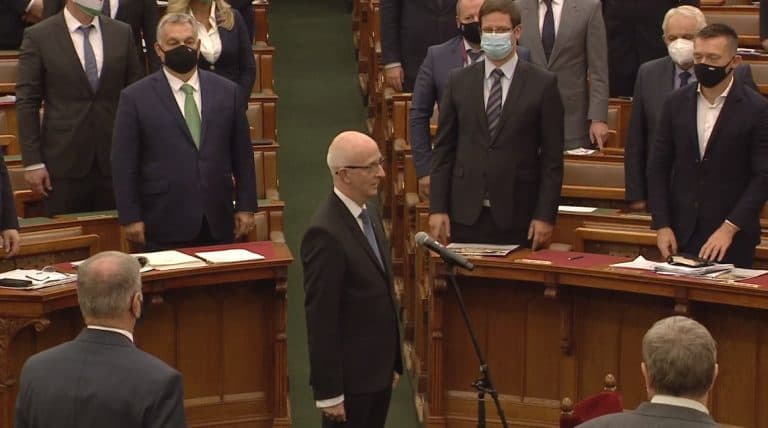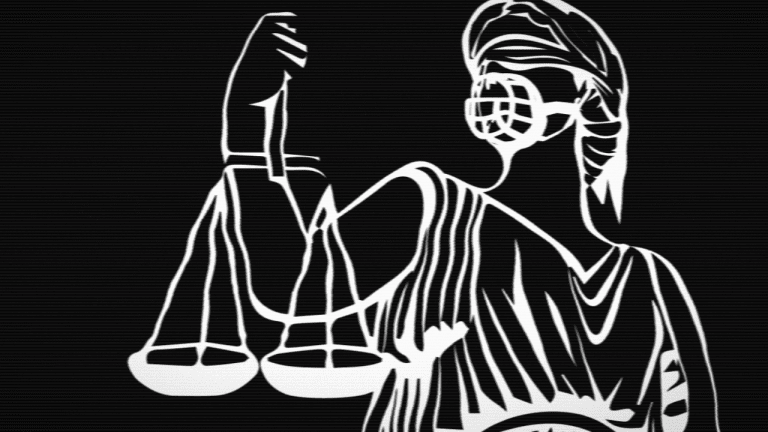Qualitative changes in Hungary’s illiberal regime since the last Article 7 hearing
18 months have passed since the last hearing was held in the Article 7 procedure. During this time qualitative changes have occurred in the nature of the Hungarian illiberal regime. We look at some of the key issues today’s Article 7 hearing in the General Affairs Council should take into account.
One and a half years have passed since the last hearing was held in the Article 7 procedure. During this time qualitative changes have occurred in the nature of the Hungarian illiberal regime. We look at some of the key issues today’s Article 7 hearing in the General Affairs Council should take into account.
In 2019, it seemed that the Government’s ambition was to eliminate or occupy all institutions that can exercise any control over what the executive is. Now it seems that the incumbent government tries to make democratic competition devoid of meaning by creating in very important areas a parallel state structure that will be shielded from public scrutiny and will be untouchable for any future government that does not have a constitutional supermajority.
The world has also changed since the last hearing in December 2019: the Hungarian government declared a state of danger (a kind of state of emergency, a special legal order) after the first COVID patients were identified. Through its parliamentary supermajority, it granted itself unprecedented authorization to rule by decree. The Hungarian government used (in fact, continues to use) this unparalleled authorization not only to manage the pandemic, but also to impose unjustified restrictions on fundamental rights, to stifle municipalities, or to meddle in the operations of private companies.
In the shadow of the pandemic, through legislative changes and individual appointments, the independence of the judiciary was further eroded. While attacks against and pressure on the Hungarian judiciary might not be as spectacular as is the case in Poland, the situation is equally alarming. Legislative changes allowed the channeling out of sensitive cases as well as the appointment of a new Chief Justice who is a potential conveyor belt of the executive.
Last, but not least, the government seemingly found its newest enemy: the Hungarian LGBT+ community. Over the course of almost a year, the governing majority banned legal gender recognition, inserted into the Fundamental Law (Hungary’s constitution) that “the mother is female, the father is male”, practically excluded single persons from adoption (except if the minister for family affairs grants permission on a case-by-case basis), only to adopt a bill on the last day of Parliament’s spring session that bans products, advertising and media content available to those under 18 that depict LGBT people and bans educational programmes that mention the existence of the community.

Judicial independence: During the last hearing, Hungary was asked about a lengthy omnibus bill submitted to Parliament in November 2019, and its effects on judicial independence. The Hungarian delegation responded that “the omnibus bill was intended to address […] technical issues left open by the decision to withdraw the […] reform of the administrative courts”. We know now it was not true. The bill allowed Constitutional Court judges elected by the governing majority to be parachuted to the Kúria, Hungary’s supreme court. This opened the way for electing as the new President of the Kúria Mr András Varga, who never worked as a judge, has no courtroom experience or experience in judicial administration. Mr Varga was elected by the ruling majority against the sweeping objection of the national Judicial Council, Hungary’ judicial self-governing body. 13 members were against him and only 1 in favour. The majority held that Mr Varga was not sufficiently independent from the other branches of power and did not appear impartial to an outside observer.
Before becoming Hungary’s Chief Justice Mr Varga expressed peculiar opinions about judicial independence, calling the judiciary the most dangerous branch of power, judicial self-administration “a delusion”, or claiming that the interpretation of the rule of law within the European Union “has become tyrannical, […] totalitarian” and an “instrument of arbitrary exercise of power”.
Mr Varga holds very strong administrative powers over the judges of the Kúria (appointment, promotion, fringe benefits, disciplinary powers). The number of Kúria judges is now being raised from ca. 90 to 110. These 20 judges are handpicked by Mr Varga. His chosen deputy is a loyalist of the prime minister. The most recent appointee worked as an influential Secretary of State, right under the Minister of Justice until two months ago. Mr Varga has the right to amend the case allocation system of the Kúria as many times as he wishes.
And his powers are not only administrative. The same Omnibus Act introduced a new type of proceeding, the unification complaint which increases the Kúria’s weight in determining jurisprudence and setting precedents. It is Mr Varga’s prerogative to choose the judges who deliver decisions in these proceedings, and he also chairs the unification panels.
What we see now is that the Hungarian government is attacking judicial independence from the top: through increasing the Kúria’s role in shaping the jurisprudence and putting the institution into the hands of someone it trusts to be loyal.

Ruling by decree: The government-declared special legal order has been practically in place since November 2020 and is likely to remain at least until September. During the special legal order, through the wide authorization it received as a result of the First, the Second, and Third Authorization Acts, the government may issue decrees that suspend the application of certain Acts of Parliament, derogate from the provisions of such Acts and take other extraordinary measures. Since last spring, the government issued over 250 such decrees. A good part of these were indeed related to the pandemic, several serve different purposes.
From the latest batch of decrees, 532/2020 (XI. 28.) is an example of such. This decree, which might be in breach of the freedom of movement of capital, grants the minister of the interior veto powers over foreign investments that may result in dominant influence not only in truly strategic areas, but also other areas, such as the insurance business as well. The decree also expands the scope of what „foreign” means so that it includes companies registered in the EU/EEA-Switzerland Zone. This was used to halt the planned takeover of Aegon by the Vienna Insurance Group. An adopted government-sponsored bill extends this regulation for a year from the termination of the special legal order.
Another decree states that tenders related to the 2020 Dubai World Expo and the organisation of MotoGP Hungary may be conducted without a public call for application.
Many of the similarly questionable decrees issued during the special legal order in the spring of 2020 (e.g. the creation of special economic zones) made it into the “regular” legal order through the First Transitional Act.

Creating a parallel state: The ruling majority has started to create in cardinal laws (laws that can only be amended with a two-third majority) new structures and institutions that secure in crucial areas the informal influence of the present incumbent party even if there is a change of government in the next general elections.
One such structure is “public trust funds performing a public function”. There are now 33 such funds, many of them entrusted with the management of universities that belonged under Hungarian public law. The state has endowed the funds with public assets of extreme value (billions of Euros) and undertakes to continue to finance them generously, while ceding all the funder’s rights to the boards of trustees consisting of life-long members whose loyalty to the incumbent party is unquestionable. Several government members have become board members. In addition, the funds are exempted from the obligation to use their assets to carry out activities that are directly related to their public purpose.
Another such structure (also cemented into a cardinal law) is the recently set up Supervisory Authority for Regulated Activities that will be in charge of supervising (i) tobacco retail, (ii) judicial enforcement, (iii) gambling, and (iv) liquidation. All future tender invitations by the State regarding concessions will be subject to the prior approval of the new authority. Its President will be appointed by the Prime Minister for 9 years without a public call for applications. The President who will be practically irremovable will have wide-ranging managerial and regulatory powers.
The Hungarian Atomic Energy Authority was also transformed in a similar vein. Russia and Hungary signed an agreement to expand Hungary’s nuclear power plant. The agreement includes an EUR 10 Billion Russian loan to Hungary, but the Atomic Energy Authority has not yet issued a construction licence. The president of the Authority resigned in 29 April 2021. In 11 May 2021 the Government submitted Bill T/16224 that transforms the Atomic Energy Authority from a government controlled entity into an authority with structure similar to that of the Supervisory Authority for Regulated Activities, meaning that the Prime Minister can now appoint someone who makes all the crucial decisions regarding atomic energy in the next decade.
These steps are an attempt to create a parallel state structure that can prolong the informal power of the present incumbent into the next cycles even if there is a change of government.

Violating the rights of LGBT+ people: On 15 June 2021, the Parliament passed Bill T/16365 on “amending laws enabling stricter action against paedophile offenders and the protection of children”. The law imposes a ban in different contexts on making available to children under the age of 18 not only pornographic content, but also materials that “promote” or simply portray “deviation from gender identity aligning with one’s birth sex”, gender reassignment, or homosexuality. Such contexts include advertising, the provision of media content, and it will also be forbidden to conduct in schools or other educational institutions any classes or sessions on sexual culture, sexual life, sexual orientation and sexual development in a way that they are “aimed at promoting deviation from gender identity aligning with one’s birth sex, gender reassignment, or homosexuality”. The Bill (which is now pending promulgation by the President of Hungary) also envisages that apart from teachers, professionals providing school-health care services, and state bodies, only a person or organization registered by the body designated by law can hold a session or organize activities on sexual culture, sexual life, sexual orientation, sexual development, the harmful effects of drug use, and the dangers of the internet. The explanatory memorandum (which has binding force on the interpretation of the legal provisions since July 2018) expressly states that the purpose of this rule is to prevent NGOs and other initiatives from conducting activities that would sensitise the students to non-traditional sexual orientations or gender identities. The Bill envisages liability for a petty offence (penalised behaviour not reaching the level of criminal liability) for both the head of the educational institution and the person conducting the session or activity, if the above rules are violated (i.e. someone not registered with the designated state body holds a session on sexual culture, sexual life, sexual orientation and sexual development). Sanctions prescribed in other laws (i.e. the media law, the law on advertising, the law on national public education), including the imposition of substantial fines will be applicable if – in breach of the new law – materials “promoting” or simply portraying homosexuality and gender reassignment are made available for persons under 18 (while the age of consent is actually 14 in Hungary). In light of the explanatory memorandum of the law it is questionable whether even in principle the minister for family affairs would ever consider giving an exemption to a non-heterosexual person – the only way adoption for LGBT+ individuals is now “possible”.